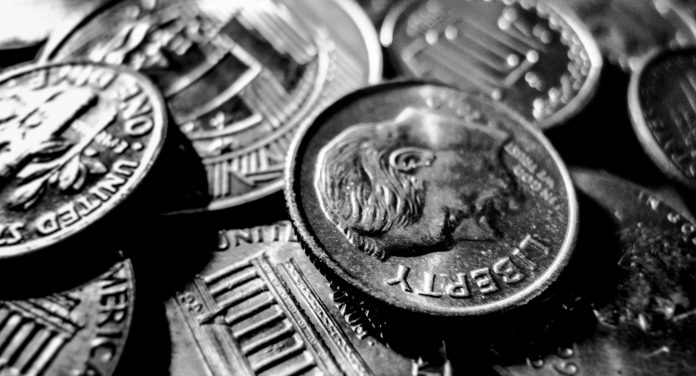The British pound is lower against the US dollar on Thursday.
Significant early gains in the exchange rate turned to losses in volatile trading at the beginning of the new week, with the pound seemingly tracking risk sentiment and the moves in global stock markets.
The US dollar initially dropped on the announcement of some astonishing new measures from the Federal Reserve but later turned higher as a haven when risk sentiment soured.
GBP/USD was down by 126 pips (-1.08%) to 1.1515 with a daily range of 1.1498 to 1.1715 as of 5pm GMT.
The currency pair jumped up and down several hundred pips, first finding resistance at 1.17 then slipping to last week’s 35-year lows under 1.15.
British pound drops after plan to pay workers 80% of wages
US futures started the day limit down 5%, surged on the news of new Fed easing measures and then slid as the number of virus cases jumped in New York.
Markets are still judging the economic support package announced by UK Chancellor Rishi Sunak last Friday. It includes an unprecedented plan to pay 80% of staff wages up to £2500 to businesses affected by the coronavirus.
The measures come ahead of an expected ‘full lockdown’ where many companies will be left without any customers in a forced shutdown of non-essential businesses.
Dollar gains as haven as New York cases shoot higher
In the United States, the Federal Reserve launched a host of new measures to protect the US economy. The most notable was a commitment to buy $75bn in US Treasuries every day this week as part of an open-ended QE program.
The hope is that making the US QE program unlimited will add sufficient liquidity to the global financial system to prevent any unnecessary seizures in reaction to the volatility caused by investor’s reaction to the coronavirus.
US central bankers have been adding to their already vast library of acronyms. Today saw the creation of the Main Street Business Lending Program (MSBL) for lending to SMEs and restarted something used during the last crisis called the Term Asset Backed Loan Facility (TALF).





